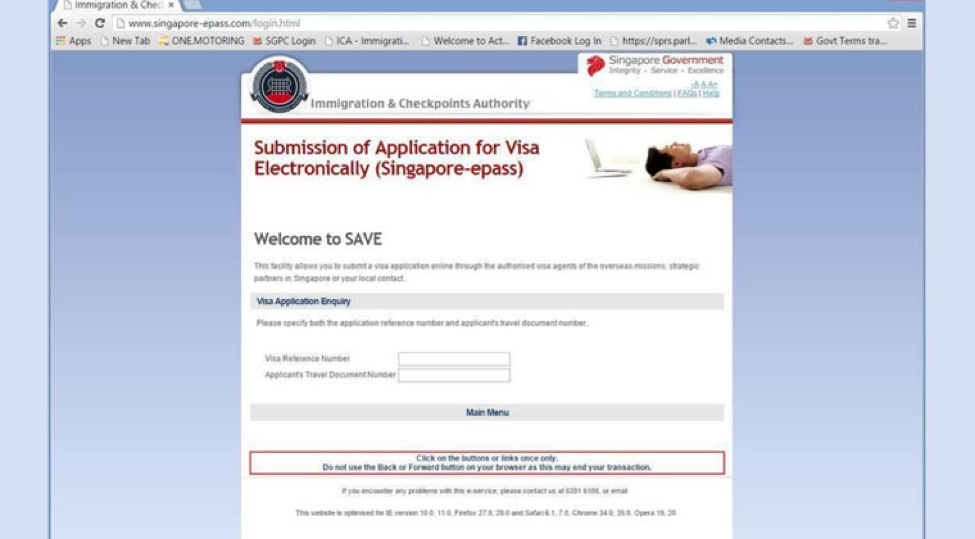Scams still happen in Singapore these days, despite increasing familiarity with life in the online space.
This is owing to scammers having endless patience conjuring up new-fangled methods of deception and trickery imaginable to get the better of their victims.
Many of those who do fall prey are unsuspecting victims, unaware of technology-facilitated communication methods scammers deploy to reach the largest possible audience at very low costs.
After all, there are a number of different tactics out there that can be used by scammers, which makes shady operations possible.
Here are some common scams that Singaporeans are still falling for, and why they work -- because human nature is hard to overcome at the end of the day.
Unsolicited gambling deals
?: Preys on those seeking a quick fast cash fix.
?: Why it works: Widespread rumours of people who win big through underground gambling.
Every now and then you might get an unsolicited text out of the blue, offering a great gambling-related deal.
It may look something like this:
The first and most obvious clue that you’re looking at a scam, is the fact that the message is unsolicited.
Imagine if this played out in real life. You’re walking along a street, and a random person suddenly jumps out and urges you to take a sure-win deal.
You’d feel suspicious right?
If you’ve never signed up for such services, don’t click on random links sent to you by people you don’t know.
Another obvious clue is that the offer “guarantees” that you will win money. This is part of a scammer’s arsenal, designed to override your natural caution by appealing to your greed.
As we have learnt the hard way, windfalls don’t come that easily in life. It’s more likely that you’ll end up paying money for a gambling game whose odds are not in your favour.
If something is too good to be true, it probably is.
Romance scams
?: Preys on those unfamiliar with catfishing techniques.
?: Why it works:Victims assume the other person is as real as himself or herself.
For those unfamiliar with what fishes have to do with online dating, “catfishing” refers to the practice of attracting people using a fictional online persona.
It’s easier these days to meet new people, with the proliferation of dating apps. Simply swipe right and you can find someone fun to hang out with.
However, finding the right match can be tricky, so it’s good to be a little more suspicious if swarms of highly attractive profiles start chatting you up.
And if the relationship quickly escalates, like hearing a declaration of undying love after just a few days, something might be up.
Be on your guard. You can do a reverse Google image search of their profile pictures. If they’re overseas, check if the town they supposedly come from even exists.
Some scammers take their time, and it may be months before the subject of money is brought up. It may not necessarily be a large amount, and they might claim they need the money for a really urgent matter. They might even offer to pay back what they “borrow”.
But please don’t send anyone money without having even met them first, or checking to see if they’re the real deal.
If you do get scammed, you might have to deal with the double fallout of losing your money and having your heart broken.
It’s still better to be forever alone than to get taken for a ride by an unscrupulous scammer.
Email phishing and receipt scams
?: Preys on those who overlook subtlety of masked links and websites in disguise.
?: Why it works: The avalanche of information and links online makes verification difficult and time-consuming.
This is a little more insidious than other scams, simply because they look so plausible. Here are some examples.
It can start when you receive an official looking email or message asking for confidential details such as your password, bank account number, credit card details, PIN number and others.
They can look close to the real thing, sometimes using official logos. Some even go to the extent of creating an entire website that looks just like the real deal. No effort is spared in getting their hands on your money.
For example, in 2017 there was a fake website trawling for passport numbers. It looked identical to the ICA’s own website. The only clue was that it the website’s url was different (it lacked the gov.sg suffix).
The scammer might also send a fake invoice claiming that you’ve signed up for a service, like a club membership or a streaming subscription.
Sometimes, you don’t even have to personally email them the information. The email might contain a link that gains access to your account when you click it.
To guard against phishing scams, just keep one thing in mind: institutions like banks or branches of the government are not supposed to ask for confidential details over email.
If such a request is made, pay attention to details such as their email addresses. For example, a genuine email from Apple wouldn’t be called [email protected].
Hover your mouse over the link before clicking it first and check out the url. If it takes you to a different website, sound the alarm!
It’s usually safer just to go straight to the official website, as clicking on the link may take you to a website set up by the scammer, which is capable of harvesting all your personal details and account information.
You can also check out Scam Alert SG to be extra safe.
Fake kidnap / extortion
? Preys on people’s fear of endangering their loved ones.
? Why it works: Mean world syndrome makes people assume wrongly bad events occur more often than they really do.
And sometimes scammers don’t even bother with subtlety.
They straight up try to convince you that they’ve brutally abducted a loved one.
Sometimes they might call you directly, hoping that you’ll be too shocked to respond sensibly.
They may use other tactics to ramp up the pressure, like saying they’re watching you, or giving you a deadline to make you panic.
Singapore is a pretty safe place where violent crime is concerned, and it’s unlikely that kidnappers would target random people off the street.
Take a step back and think before making your next move. Try calling your loved one from another phone and check that they’re not in danger. You should know exactly what you’re dealing with, a scam or an actual kidnap situation.
Another common method scammers use is impersonating your friends to try and get your money. For example, hackers can trick people into allowing them to take over your Whatsapp:
This allows them to ask for help using your friend’s accounts.
On that note, just don’t give out your account verification codes, to anyone. The whole point of such a two-step system is to make sure only you have authorised access.
Just one click
With more of our jobs, finance, leisure and lives being spent online, the least you could do is to learn how to defend yourselves from the big bad wolves out there.
People have brought immense trouble and stress on themselves with just one click. That’s all it takes.
Just ask the DBS customers who fell for phishing messages back in Nov. 2018.
By not paying enough attention, additional payees were added to their account and unauthorised transactions were made.
To avoid finding yourself in a similar situation, it’s a good idea to remind yourself of all the things that help against online scams.
You can also click here for more information on how you can avoid falling for such scams.
Luckily, they’re pretty easy to keep in mind. And you’ll avoid having to explain to everyone you know how and why you fell for a scam.
Better Internet campaign
The Better Internet Campaign is the Media Literacy Council’s (MLC) flagship campaign to champion media literacy in Singapore.
With the theme #1ClickAway, the campaign is centred around the message of “Be Safe, Be Smart, and Be Kind”.
This article is the first of three pieces that aim to help Singaporeans understand the power of a simple click. This is to encourage netizens to build a safer, smarter and kinder internet by embracing conscious and discerning online actions.
For more information, visit 1 Click SG.
This sponsored article by the Better Internet Campaign made the writer’s boomer generation parents immune from future Internet scams.
Top image from Singapore Police Force and SingPost.
If you like what you read, follow us on Facebook, Instagram, Twitter and Telegram to get the latest updates.



